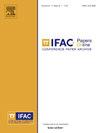The Lazy Student’s Dream: ChatGPT Passing an Engineering Course on Its Own
Q3 Engineering
引用次数: 0
Abstract
This paper presents a comprehensive investigation into the capability of Large Language Models (LLMs) to successfully complete a semester-long undergraduate control systems course. Through evaluation of 115 course deliverables, we assess LLM performance using ChatGPT under a “minimal effort” protocol that simulates realistic student usage patterns. The investigation employs a rigorous testing methodology across multiple assessment formats, from auto-graded multiple choice questions to complex Python programming tasks and long-form analytical writing. Our analysis provides quantitative insights into AI’s strengths and limitations in handling mathematical formulations, coding challenges, and theoretical concepts in control systems engineering. The LLM achieved a B-grade performance (82.24%), approaching but not exceeding the class average (84.99%), with strongest results in structured assignments and greatest limitations in open-ended projects. The findings inform discussions about course design adaptation in response to AI advancement, moving beyond simple prohibition towards thoughtful integration of these tools in engineering education. Additional materials including syllabus, examination papers, design projects, and example responses can be found at the project website: https://gradegpt.github.io.
懒惰学生的梦想:ChatGPT自己通过工程课程
本文对大型语言模型(LLMs)成功完成一个学期的本科控制系统课程的能力进行了全面的研究。通过对115门课程成果的评估,我们在模拟现实学生使用模式的“最小努力”协议下使用ChatGPT评估LLM的表现。调查采用了严格的测试方法,涵盖多种评估格式,从自动评分的选择题到复杂的Python编程任务和长篇分析写作。我们的分析提供了人工智能在处理数学公式、编码挑战和控制系统工程理论概念方面的优势和局限性的定量见解。LLM取得了b级成绩(82.24%),接近但不超过班级平均成绩(84.99%),其中结构化作业成绩最好,开放式项目限制最大。研究结果为课程设计适应人工智能进步的讨论提供了信息,不再是简单的禁止,而是将这些工具深思熟虑地整合到工程教育中。其他材料包括教学大纲、试卷、设计项目和示例回答可以在项目网站上找到:https://gradegpt.github.io。
本文章由计算机程序翻译,如有差异,请以英文原文为准。
求助全文
约1分钟内获得全文
求助全文
来源期刊

IFAC-PapersOnLine
Engineering-Control and Systems Engineering
CiteScore
1.70
自引率
0.00%
发文量
1122
期刊介绍:
All papers from IFAC meetings are published, in partnership with Elsevier, the IFAC Publisher, in theIFAC-PapersOnLine proceedings series hosted at the ScienceDirect web service. This series includes papers previously published in the IFAC website.The main features of the IFAC-PapersOnLine series are: -Online archive including papers from IFAC Symposia, Congresses, Conferences, and most Workshops. -All papers accepted at the meeting are published in PDF format - searchable and citable. -All papers published on the web site can be cited using the IFAC PapersOnLine ISSN and the individual paper DOI (Digital Object Identifier). The site is Open Access in nature - no charge is made to individuals for reading or downloading. Copyright of all papers belongs to IFAC and must be referenced if derivative journal papers are produced from the conference papers. All papers published in IFAC-PapersOnLine have undergone a peer review selection process according to the IFAC rules.
 求助内容:
求助内容: 应助结果提醒方式:
应助结果提醒方式:


